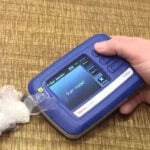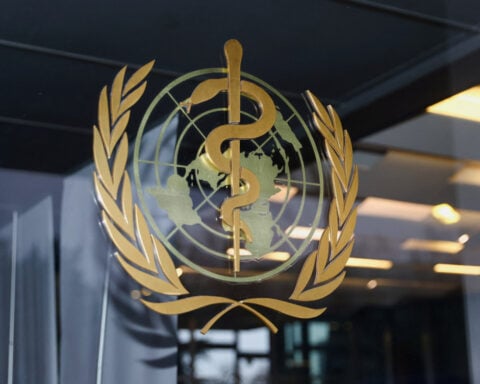A concerning outbreak of Salmonella from contaminated charcuterie meats has hospitalized nearly 20 Americans so far, with instances across 30 states. Epidemiological tracing links bacterial infections to certain Fratelli Beretta charcuterie products containing Coppa. However, with many brands affected and gaps in testing, the true scope of the outbreak remains uncertain even as recalled meats continue to sicken consumers. Real threats persist while investigators pursue decisive actions to limit further contamination and treat those struggling with severe symptoms.
As of mid-February 2024, the Centers for Disease Control (CDC) directly verified 87 affected patients nationally. However, Agency estimates predict over 2,500 additional cases that have likely occurred that have avoided official diagnosis so far. The earliest identified onset emerged on November 20th, 2023, with frequency increasing through year-end holidays when charcuterie gift packs become especially popular. Nearly 80% of interviewed patients self-reported eating various charcuterie meats, aligning with other evidence. Minnesota Department of Agriculture analysis of unopened consumer packages also found salmonella strains “closely related” to those impacted patients, confirming contaminated products were actively circulating.
CDC warnings emphasize that otherwise healthy adults should fully recover within a week despite enduring painful stomach issues. However, Salmonella complications can readily turn life-threatening for those with compromised immunity, like seniors, infants, and pregnant women, and those with weakened immunity, like cancer patients. They further caution that even mild cases merit medical attention to tailor antibiotic treatment in light of detected bacterial drug resistance. All consumers remain advised to promptly discard any questionable charcuterie while following news of evolving product recalls.
Fratelli Beretta initiated limited recalls after authorities identified their Coppa carried the outbreak strain. However, more comprehensive sampling detected additional Salmonella in salami and soppressata salumi products. Ongoing surveillance may yet reveal more tainted goods from the distributor as product lines get thoroughly tested. For now, purchasers must exercise high caution with processed meats exhibiting similar disease risk factors, such as options lacking microbial controls.
Pinpointing infection sources often proves complicated with processed combinations of meat from various farms. Tracing supply chains to isolate contamination requires significant coordinated legwork from producers, distributors, and public health officials. Until root causes get fully established, risks continue.
In this case, credit goes to proactive state investigators collecting samples from victims’ homes to enable DNA matching of bacteria consumed, and federal food inspectors rushed when initial clues emerged. Their prompt specialized tests and genome sequencing analysis helped connect clear dots to incriminate suspect goods. That evidence then empowered companies to start containing threats when requested.
Ongoing cooperation now centers on identifying the original infection entries into processing plants to improve standards. Where did these bacteria first infiltrate? How did they proliferate? Have inspection processes changed sufficiently? Long-term prevention goals will bolster safeguards across the entire farm-to-table continuum regarding risks with processed perishables.
In contrast, public guidance must tackle the immediate needs of those currently facing infection threats or symptoms. Recommendations include scanning homes for any questionable products to discard regardless of recalls. Consumers confronting potential exposure or stomach issues should immediately pursue medical consultation for tailored health responses.
For those awaiting checkups, self-care basics like hydration and probiotic diet support still apply. Updates will continue to ensure those affected get connected to assistance while driving better accountability and standards to regain lasting trust. In a dangerous time, knowledge and community empower overcoming together.
Salmonella outbreaks linked to poultry, beef, and produce like lettuce and onions have sickened thousands over the past decade. However, contamination in processed specialty meats poses unique risks and challenges. Raw salad ingredients often utilize rinses to disinfect. Charcuterie meats rely on careful starter cultures and ingredient mixing to prevent pathogen spread during fermentation, drying, and aging.
When standards, cultures, and controls slip, risks compound from extended shelf lives. Bacteria multiply over months instead of days with raw goods. Monitoring processes must catch issues early, while verification testing confirms pathogen elimination downstream where quality protocols are lacking across long supply chains; recurring lapses, as in these charcuterie cases, grow into full crises.
Symptoms develop 12-72 hours after ingesting tainted products, beginning with stomach cramps and violent diarrhea. Nausea, vomiting, fever, and dehydration may accompany persistently debilitating gastrointestinal attacks lasting a week or more. Health implications scale with age and immunity factors, as vulnerable groups face life-endangering dehydration, kidney failure, and invasive infections.
Therefore, Food safety depends on preventing farm animal illness and contamination during slaughter and processing. Standards for water quality and equipment sanitizing procedures are vital across every transfer point. Catching and containing risks early limits magnification down the line.
Between outbreaks, maintaining integrity via cultures, curing formulas, and temperature controls inhibits bacterial expansion in finished goods. Steady verification and testing confirm hazards stay eliminated. Where links break, a thoughtful evaluation must inform system upgrades to regain stability.
However, when batches do slip through with contamination issues, responsive recall protocols, and distribution tracking provide critical consumer protection as the last lines of defense. Maintaining robust traceability and supply chain monitoring delivers accountability despite unavoidable imperfections. It also aids essential epidemiology investigations of disease sources.
Acknowledging the challenges to food oversight should not yield a defeatist attitude. Salmonella rates have fallen drastically over the past 20 years as technology and collaboration have expanded. Continued education, transparency, and accountability drive further progress. Consumers contribute mightily by promptly reporting concerns to empower safety improvements.
In the immediate term, those potentially exposed find reassurance in knowing outbreak causes and medical guidance. Checklists for handling suspect products and illness symptoms offer stability while investigations proceed. Coping through the distressing gastrointestinal experience finds support from diagnosis and compassionate care.
In the longer term, consumer health interests further focus on commitments to safety advancements. Balancing vigilance with level-headed guidance moves societies forward through the peril of mass food production. With prevailing public wisdom and responsible enterprise, steady gains accumulate.

 Police want to talk to man after gun was accidentally fired gun inside Walmart bathroom
Police want to talk to man after gun was accidentally fired gun inside Walmart bathroom
 Woman arrested for what was found in 'colorful party bag' during traffic stop, deputies say
Woman arrested for what was found in 'colorful party bag' during traffic stop, deputies say
 Device helps police detect drugs safely
Device helps police detect drugs safely
 Fact check: Trump makes false claims about trade with Canada and Europe in remarks to Davos
Fact check: Trump makes false claims about trade with Canada and Europe in remarks to Davos
 Prince Harry claims court victories. But is he winning the larger war with the British media?
Prince Harry claims court victories. But is he winning the larger war with the British media?
 Judge blocks Trump’s ‘blatantly unconstitutional’ executive order that aims to end birthright citizenship
Judge blocks Trump’s ‘blatantly unconstitutional’ executive order that aims to end birthright citizenship
 Made in Maine: Kittery company using kelp to help keep skin hydrated
Made in Maine: Kittery company using kelp to help keep skin hydrated
 Karla Sofía Gascón makes history with ‘Emilia Pérez’ Oscar nomination
Karla Sofía Gascón makes history with ‘Emilia Pérez’ Oscar nomination
 ‘Offensive’ tattoos and ‘see-through clothing’ can get you kicked off your next Spirit Airlines flight
‘Offensive’ tattoos and ‘see-through clothing’ can get you kicked off your next Spirit Airlines flight
 Ariana Grande pays homage to her ‘Oz’ roots with emotional Oscar nomination reaction
Ariana Grande pays homage to her ‘Oz’ roots with emotional Oscar nomination reaction








